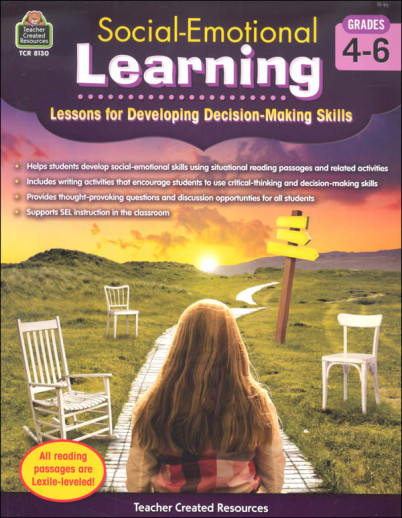We use cookies to make your experience better. To comply with the new e-Privacy directive, we need to ask for your consent to set the cookies. Learn more.
Social-Emotional Learning: Lessons for Developing Decision-Making Skills Grades 4-6
These books are designed to help students develop a strong set of social and emotional skills. Students are asked to read, think, and respond to a variety of reading passages that contain character-building scenarios. 128 pages.
Each of the 15 units includes:
a 3-page reading passage addressing a different aspect of character development, such as honesty, fairness, respect, and responsibility
thought-provoking questions for teacher-guided discussions
5 reading comprehension questions
4 different writing activities to gauge understanding of concepts
The reading passages in this resource provide an opportunity for questions and discussion on a variety of topics related to building good character traits such as honesty, fairness, responsibility, tolerance, generosity, loyalty, caring and respect. In one scenario, students throw a party for a favorite teacher and the questions talk about how to show appreciation for someone. Students who struggle with social cues could especially benefit from this sort of direct instruction of abstract concepts. The reading selections are age and reading level appropriate. Some questions ask students to choose the best answer, while others require writing a few sentences.

